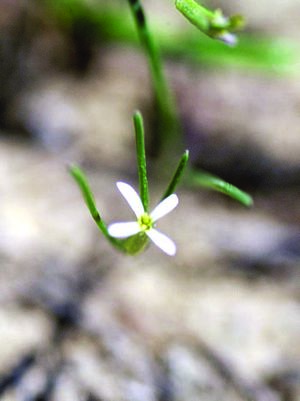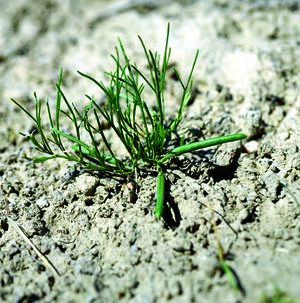Leptaleum filifolium (Gintzburger et al., 2003)
| Leptaleum filifolium (Gintzburger et al., 2003) |
Leptaleum filifolium (Willd.) DC.
Local name:
- Russian: Лепталеум нителистный - leptaleum nitelistnyj
- Kazakh: Shitr, Serge-kara, Shutr
- Turkmen: Buynuz
- Uzbek: Serge-kora
Description and morphology: Annual herb (height 5–30 cm), sparsely pubescent to glabrescent at maturity. Stem: prostrate to ascending, many branches arising from base. Leaves: 3–6 cm with 3–5 filiform segments. Flowers: axillary, solitary or in few-flowered racemes; pedicels (2–3 mm); petals (6–9 mm) white, 6 stamens or reduced to 2; longer filaments fused in pairs. Stigma lobes fused into small cone.
Reproduction: Flowering and fruit maturation: March–April. Fruit: typical silique (1.2–2.5 long, 0.2–0.3 cm wide), linear, compressed, dehiscent at the apex; reticulate lateral veins on valves. Seeds: oblong-elliptic, in 2 rows.
Pastoral importance: Poor.
Habitat: Occurs in sandy and stony deserts, clay and loam steppe.
Distribution: Central Asia, European part of Russia – Caucasus to Mediterranean region.

